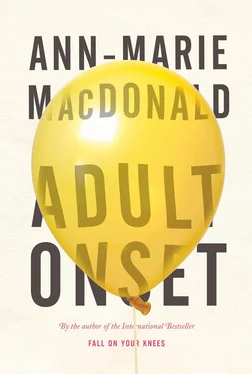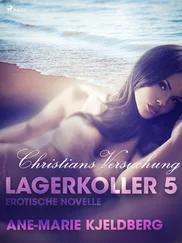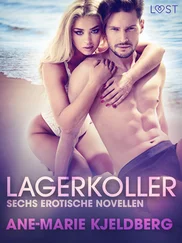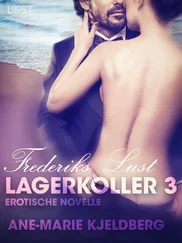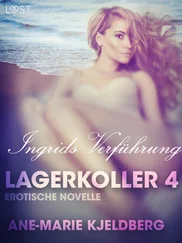He bent over his pad once more, tore it off and handed it to her, saying, “This one’s right in the building.”
She thought he was talking about the pharmacy, and figured the second script was for a lower dose of Tylenol.
“Thanks.” She retraced the bone-white footsteps to the elevator, crossed the echoey food court toward the pharmacy — might as well have something on hand in case the pain came back — her own “nice mother” pills. It had given her pause to learn that her arm had been in a state of chronic friability throughout her childhood — was, in fact, broken sometimes. Several times. Often. But what did it change? It was in the nature of bone cysts to fracture without fanfare — witness the airplane swing at four, which would account for one of the here s at the end of Dr. Ostroph’s pencil … how many heres were there? The swing was the first to result in a sling but may not have been the first fracture. Still, if her arm was injured enough to merit a sling, why did it not merit an X-ray? Because no one thought it could possibly be broken because bone cysts cause bones to break and no one knew she had bone cysts — which came first, the chicken or the egg? Her mother provided her with a sling because it seemed Mary Rose had pulled a muscle. Seen from this perspective, Dolly was very attentive indeed — all that fuss for a mere muscle. If Mary Rose had made it clear her arm really hurt — if she had cried — she might have got an X-ray and been spared the ensuing saga. It was her own fault.
She handed over the second prescription and the pharmacist was already turning toward his dispensary shelves when he stopped and handed it back.
“This not a prescription,” he said in his Chinese accent.
“Yes it is, I just got it from Dr.—”
“Dr. Ostroph, yes, no, not for drugs, miss, look.”
She looked. It was a referral to a psychiatrist.
“Thanks,” she said, and left empty-handed.
That night, Hil brought a tray of nachos, salsa and two glasses of wine down to the basement rec room. She was wearing her fuzzy mauve dressing gown that sounds dowdy but is sexy — Hil has a way of turning a tea towel into a seventh veil. She bent and her shingle of dark hair fell forward to graze Mary Rose’s cheek as she administered the very married kiss that said, I love you and I know we’re both too tired, so let’s just watch TV , and said aloud, “So what did the doctor say?”
“He said there’s nothing physically wrong.”
Mary Rose was kneeling in front of the DVD player. “Which disc were we on?”
“What about the pain?”
“There’s no pain unless it’s broken.”
“But if it only hurts when it’s broken—”
“Yeah, no, it’s not broken now, the pain I’ve got now is called ‘remembered pain,’ it’s like a neurological thing, are we going to watch?”
“What?”
“Sopranos.” Mary Rose put in disc five.
“No, if it only hurts when it’s broken, then—”
“It isn’t hurting, I thought it away.” Throb .
“Then that means when you were a kid, it was broken every time it hurt.”
“You can’t know without an X-ray. What episode were we on?”
“I think we were halfway through three.”
Mary Rose pressed play .
Hil said, “Why didn’t they get you an X-ray?”
“They did, eventually.”
“Why didn’t they before?”
Mary Rose pressed pause , somewhat irked — this was their one chance to re-watch a whole episode before they fell asleep from exhaustion or Maggie woke up. “Because no one thought my arm could be broken, that’s the point.”
She fast-forwarded, chuckling as the familiar frames jerked past.
“But it hurt,” said Hil.
“Yes, but I was stoic, so they couldn’t know.”
“Even your brother knew it hurt.”
Mary Rose pressed pause again.
“Okay, my darling, my mother was busy, bereaved, okay? Angry, pregnant, whatever, I don’t know, she had a hard childhood, I must’ve looked perfectly fine by comparison.”
“She was a nurse.”
“Exactly, the children of health professionals rarely get a Band-Aid, look at you with your dad. He didn’t even give you an Aspirin the time he sewed up your finger on that fishing trip when you were eight.”
“He’s a psychiatrist.”
“All the more reason.”
Play . Tony Soprano settled himself into an upholstered chair—
“How many times did your mother make a sling for you out of an old scarf? She must have known something was wrong.”
Mary Rose sighed. “Three times, and it was usually a new scarf, are we going to watch?”
Hil’s bathrobe had fallen open slightly — seductive, in a 1950s housewife kind of way. Mary Rose pictured her bending over to clean the oven … in G-string and garters. “What’s a nice girl like you doing in a place like this?” Enter, woman with tool belt, here to lay tiles. “Hey, can I give you a hand? …” Hank is right, she should be writing erotica — which is what women say when they don’t want to say “porn.”
“Sorry, Hil, what did you just say?”
“I didn’t say anything.”
Hilary was a human authenticity-detector. The little lies that allow so many marriages to float, if not merrily, then at least gently down the stream were provocations to Hil. Not that Mary Rose was lying. In Hil’s gaze now was the mixture of curiosity and concern that Mary Rose recognized as the signal that she was starting to listen “behind the words.” This was good news and bad. It meant that Mary Rose was about to be understood whether she liked it or not.
“Look, Hil, what you have to understand is, that was a different era.”
“The era of what, stupid people?”
“Please!”
“I’m sorry—”
“It’s okay, just — I don’t have cancer, okay? I don’t have bone cysts, I’m not beating my child.” She chuckled.
“What’s that got to do with it?” Hil’s lovely blue eyes narrowed unattractively along with her mouth. “Are you telling me you’ve hit the children?”
“Of course not.”
On screen, Tony Soprano was frozen, lids half closed, finger raised as though poised to order a hit or a pizza. Play .
“It is new,” said Hil.
Pause .
“What is?”
“Every time it hurt, it was broken. That is new information.”
There was no winning an argument with Hilary Creaghan once she had you in her Socratic sites — she had missed her calling as a Crown attorney. Maybe it wasn’t too late for her to go to law school and get a job with a benefits package so Mary Rose need never write the third in the trilogy.
“Fine, you’re right. But it doesn’t change anything, which is my point—”
“It means you grew up normalizing pain.”
“I already knew that.”
“No, you knew you had a high pain threshold, but you didn’t know why. I don’t think a pain threshold is something you’re born with, like bone cysts, it’s something you learn. If Maggie had a sore arm—”
“Well, she doesn’t.”
“How do you know?”
“I’m her mother.”
“You just answered your own question.”
“Hil, why are you cross-examining me, I’m just telling you what he said.”
“Why are you so angry at me?”
“I hate arguing, you enjoy it, I hate debating, I was forced into the debating club in high school and it scarred me for life, Dwight Dumphy was president, he had a damp little beard. I’m not angry, I’m making a joke, you’re the one who’s angry, you sound hostile.”
“I’m really not, Mister. And it hurts me when you talk to me like that.”
Читать дальше
